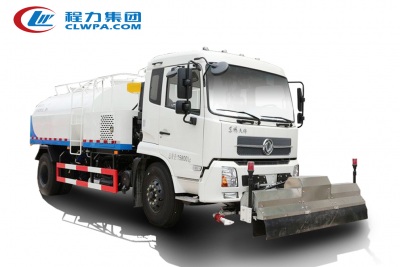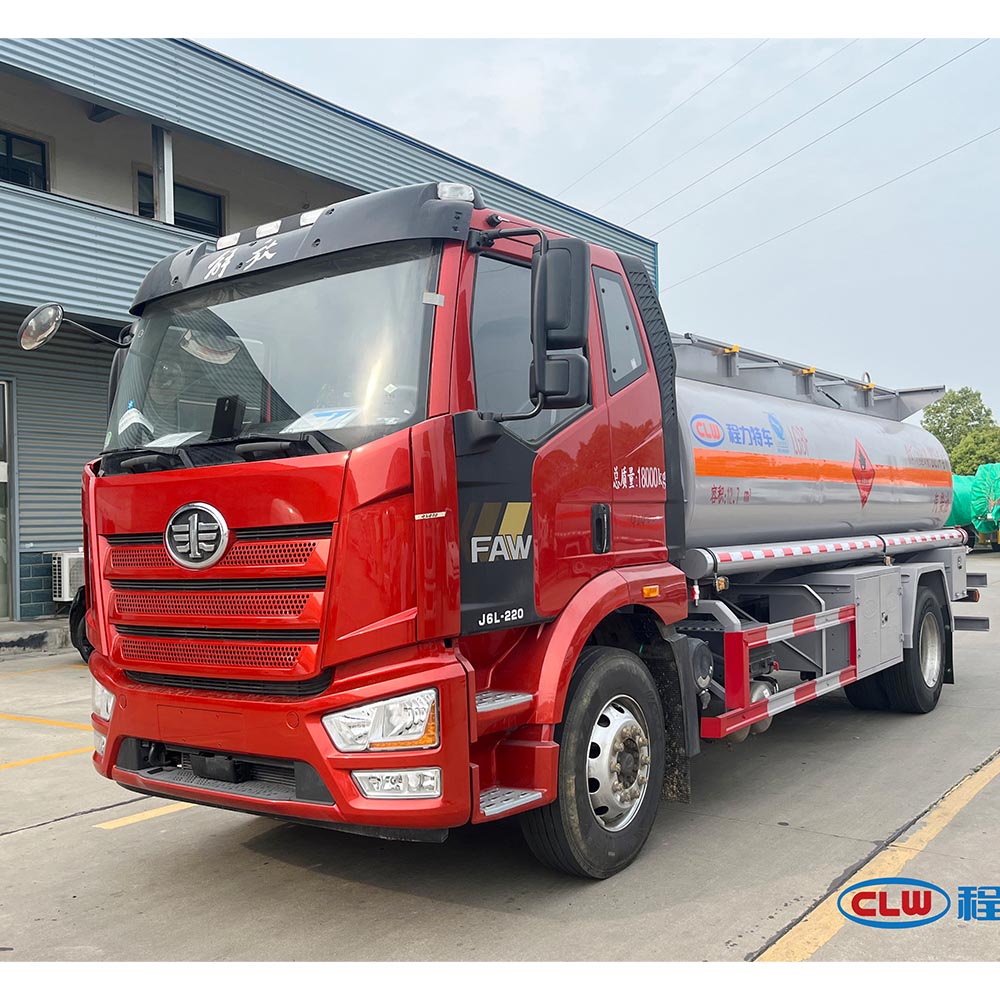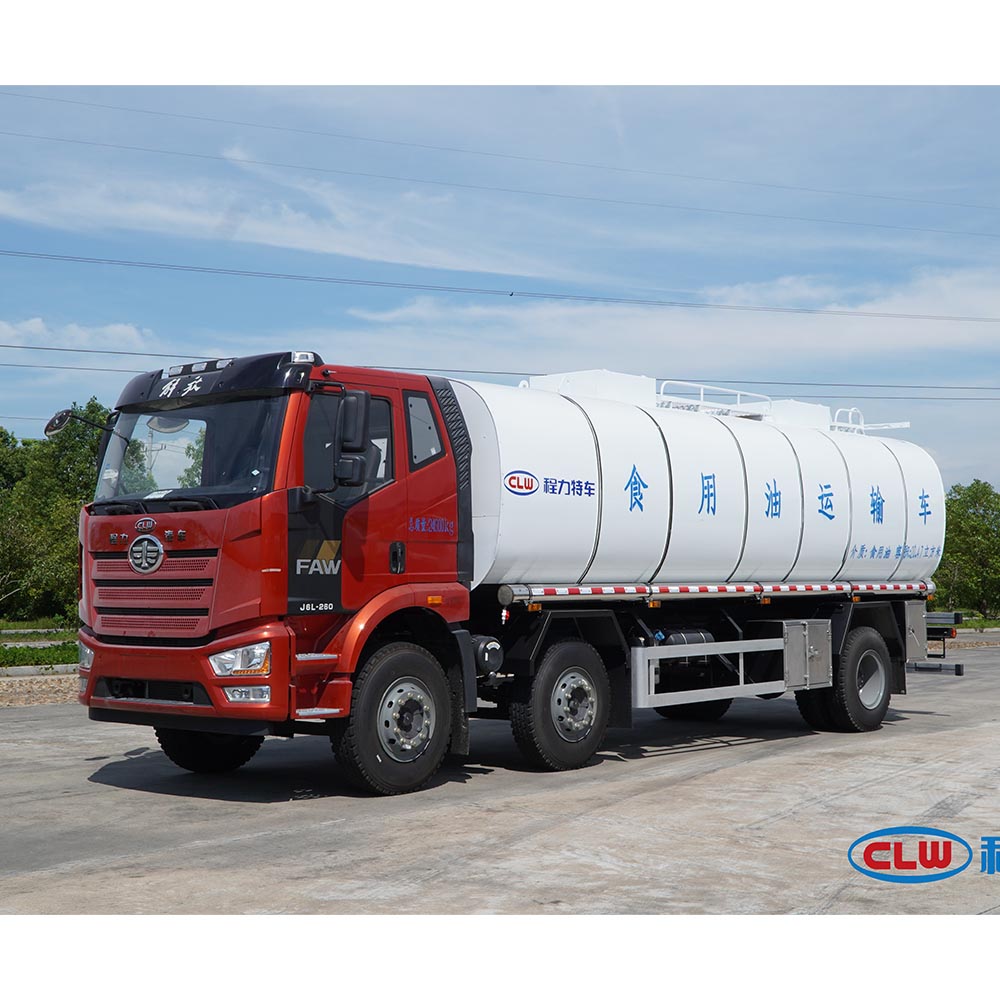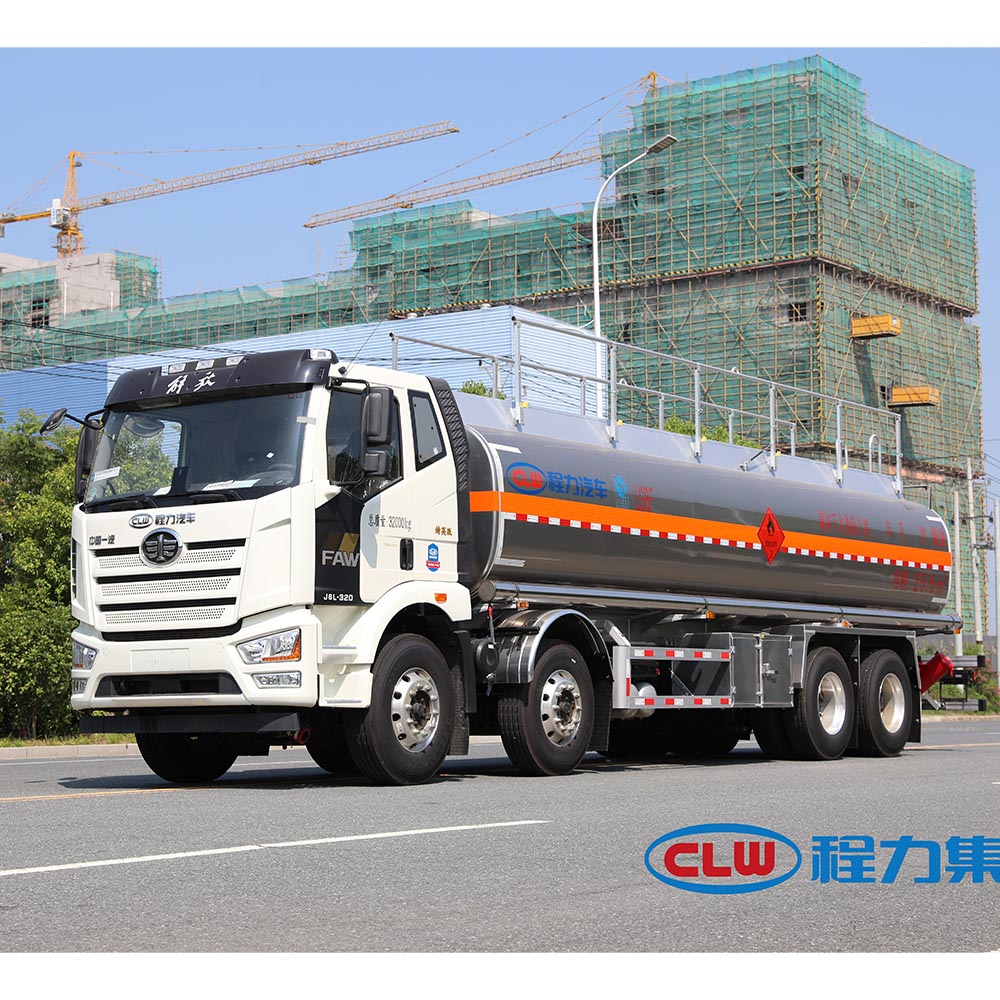-
Chengli Automobile Industrial Park
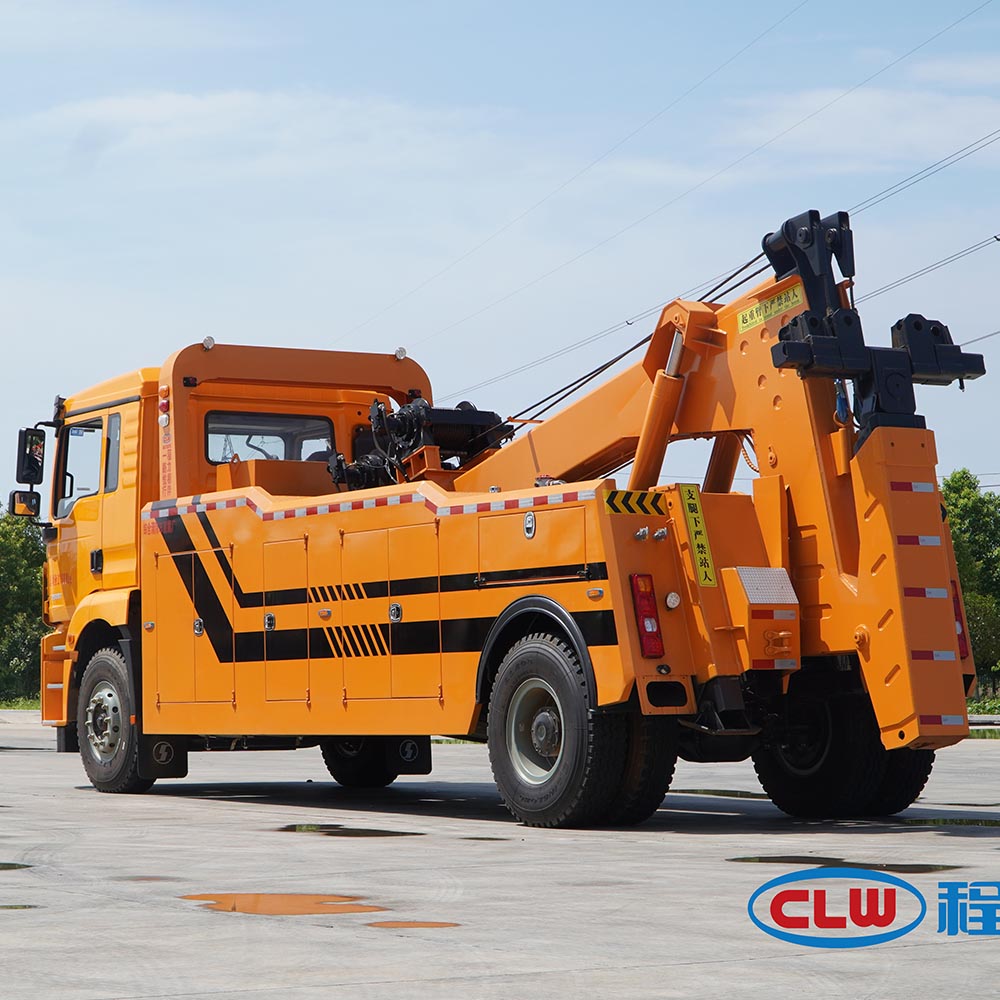
what is the meaning of towing truck
What is a Tow Truck? Understanding the Different Types and Their Uses
This article will delve into the world of tow trucks, exploring the various types of tow options available, their specific uses, and how to choose the right tow truck for your needs. Whether you’re an auto repair shop owner, a roadside assistance provider, or managing a fleet of vehicles, understanding tow truck mechanics and capabilities is crucial for efficient and safe vehicle transport and recovery. This guide provides a comprehensive overview, making it worth your time to enhance your knowledge and decision-making in the towing industry.
Table of Contents
What is a Tow Truck According to the English Dictionary?
The tow truck definition found in the English dictionary describes it as a vehicle used to tow or pull other vehicles. Specifically, a tow truck is often designed as a truck with special equipment used for towing vehicles that are unable to move under their own power. The meaning of tow truck or tow truck meaning encompasses its function in roadside assistance, accident recovery, and vehicle transport. Tow trucks are often called wreckers, especially when involved in recovering a vehicle from an accident scene. The primary function, as defined, involves pulling a vehicle using a tow bar, tow strap, or other specialized equipment. Examples of usage in sentences do not represent the opinion of all towing companies, but they provide a general understanding of how the term is used. Send us feedback if you have additional insights on the tow truck definition. The most important function of tow trucks may also vary depending on the specific needs, such as removing illegally parked cars or transporting damaged vehicles.
What are the Main Types of Tow Trucks?
There are several types of tow trucks, each designed for specific tasks. The most common types of tow include using a flatbed, wheel lift, and hook and chain. Flatbed tow trucks are ideal for towing all-wheel drive vehicles, as they lift the entire vehicle onto the bed, preventing damage to the transmission. Wheel-lift tow trucks lift the vehicle by the front or rear wheels, making them ideal for towing in tight spaces. Hook-and-chain trucks, while less common today, are still used to pull vehicles out of ditches or other challenging situations. Boom trucks are used for towing vehicles in a ditch, over an embankment, or any other challenging situation requiring a lift. Different types of tow trucks cater to various needs, from light-duty to heavy-duty applications. Tow vehicles often require different techniques based on whether they are front-wheel drive, rear-wheel drive, or all-wheel drive. It’s essential to understand these distinctions to provide efficient and safe towing service. For instance, pickup trucks and other large vehicles might require a heavy-duty tow truck while smaller cars can be handled by a light-duty tow truck.
How Does a Flatbed Tow Truck Work?
A flatbed tow truck, also known as a rollback truck, is one of the most versatile types of tow trucks. It features a long, flat bed that can be hydraulically inclined and moved to ground level, allowing the tow vehicle to be driven or winched onto the bed. Once the vehicle is secured, the bed is returned to its horizontal position, and the tow truck can transport the vehicle safely. Flatbed trucks are particularly useful for transporting vehicles that are severely damaged or those with all-wheel drive, as it prevents any further damage during tow.
Flatbed trucks provide a stable platform, reducing the risk of damage during transport. They are ideal for car towing over long distances or for vehicles that cannot be towed using other methods. The hydraulic system allows for smooth loading and unloading, making flatbed tow trucks a preferred choice for many towing companies. The ability to transport multiple vehicles also adds to their versatility, allowing towing companies to maximize efficiency by handling more than one job at a time. Additionally, flatbeds can be used to transport vehicles like motorcycles and other small equipment, making them a valuable asset for a variety of tasks.
When Should You Use a Wheel Lift Tow Truck?
A wheel lift tow truck is another common type of tow truck used for towing vehicles. This type of truck uses a yoke to lift either the front wheels or rear wheels off the ground, while the other set of wheels remains on the road. Wheel-lift trucks are particularly useful for short-distance tows and in situations where space is limited, such as parallel parking or narrow streets. The yoke fits under the front or rear wheels, and a hydraulic system is used to lift the vehicle.
Wheel-lift trucks are ideal for towing vehicles that are not severely damaged or when quick recovery is needed. They are commonly used by auto repair shops, car dealerships, and roadside assistance providers. The wheel-lift truck is less expensive than a flatbed tow truck and is often the go-to choice for towing smaller vehicles. For instance, if a car is stuck in a tight parking spot, a wheel-lift truck can easily maneuver to lift and tow the vehicle. However, they are not ideal for towing all-wheel-drive vehicles, as towing with two wheels on the ground can damage the drivetrain.
What is an Integrated Tow Truck and What are its Applications?
An integrated tow truck combines the features of a boom and a wheel-lift into a single unit. This type of tow truck is designed for versatility and efficiency, allowing operators to handle a wide range of towing and recovery tasks. Integrated tow trucks are particularly useful for heavy-duty tow applications, such as recovering large commercial vehicles or buses. The boom can be used to recover vehicles from ditches or embankments, while the wheel-lift can be used for standard towing.
These trucks are equipped with advanced hydraulic systems and robust construction to handle heavy loads. They are commonly used by towing companies that specialize in heavy-duty and commercial vehicle towing. Integrated tow trucks provide the flexibility to switch between different towing techniques quickly, making them an invaluable asset for complex recovery operations. For example, in an accident involving a semi-truck, an integrated tow truck can use its boom to stabilize and lift the vehicle, then switch to the wheel-lift for towing.
What Makes Heavy-Duty Tow Trucks Different?
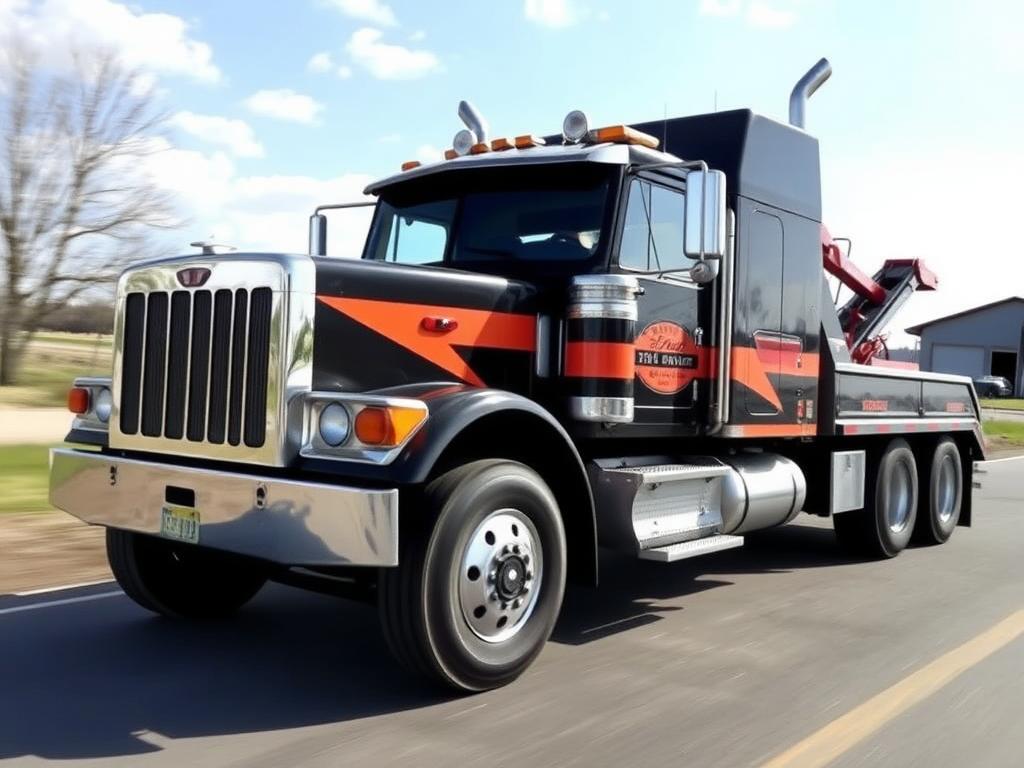
Heavy-duty tow trucks are designed to handle the largest and heaviest vehicles, such as buses, tractor-trailers, and construction equipment. These trucks are equipped with powerful winches, robust booms, and reinforced frames to manage the weight and stress of heavy-duty tows. Heavy-duty tow trucks are essential for towing large commercial vehicles involved in accidents or breakdowns. A heavy-duty tow often requires specialized skills and equipment to ensure safety and prevent further damage to the tow vehicle.
Heavy-duty tow trucks are typically used by specialized towing companies with experience in handling large vehicles. They often work in conjunction with other heavy-duty equipment, such as rotators, to perform complex recovery operations. The type of heavy-duty tow can vary depending on the situation, but common tasks include recovering overturned trucks, pulling vehicles from ditches, and transporting disabled heavy machinery. For instance, a heavy-duty tow truck might be called to recover a semi-truck that has veered off the road and landed in a ditch. In such cases, the tow truck operator would use a combination of winches and booms to lift and stabilize the truck before towing it to a repair facility.
How to Choose the Right Tow Truck for Your Business?
Choosing the right tow truck depends on the specific needs of your business. Factors to consider include the types of vehicles you will be towing, the frequency of tows, and the distances involved. For businesses that primarily deal with passenger cars and light trucks, a flatbed or wheel-lift tow truck may be sufficient. For those dealing with larger vehicles or specialized recovery operations, a heavy-duty or integrated tow truck may be necessary.
It’s also important to consider the weight limits and capabilities of the tow truck. A truck that is rated to tow heavier loads will be more versatile but may also come with a higher price tag. Additionally, consider the maintenance and operational costs associated with each type of tow truck. Flatbed trucks, for example, may require more maintenance due to their complex hydraulic systems. To make an informed decision, evaluate your current and future needs, consult with industry experts, and compare different models and manufacturers. Choosing the right tow truck can significantly impact the efficiency and profitability of your towing business.
What are the Safety Considerations in Towing and Recovery?
Safety is paramount in towing and recovery operations. Proper training and adherence to safety protocols can prevent accidents and ensure the well-being of operators and the public. Key safety considerations include using the correct equipment for the job, inspecting tow straps and winches regularly, and following proper towing techniques. When performing a tow, it’s crucial to secure the tow vehicle properly to prevent it from shifting or coming loose during transport.
Operators should also be aware of the surroundings and potential hazards, such as traffic, pedestrians, and uneven terrain. Using safety lights, reflective gear, and warning signs can enhance visibility and alert others to the towing operation. In heavy-duty tows, it’s essential to use equipment that is rated for the weight of the vehicle being towed. Overloading a tow truck can lead to equipment failure and accidents. Regular training and safety drills can help operators stay prepared for various scenarios and ensure they can respond effectively to emergencies.
What Role Do Tow Trucks Play in Roadside Assistance?
Tow trucks play a vital role in roadside assistance, providing critical support to stranded motorists. Whether it’s a flat tire, a dead battery, or a more serious mechanical issue, a tow truck can quickly arrive on the scene to provide assistance. Tow truck operators are trained to handle a variety of roadside emergencies, from jump-starting a vehicle to performing minor repairs. In cases where the vehicle cannot be repaired on-site, the tow truck can transport it to a repair facility.
Roadside assistance providers often maintain a fleet of vehicles, including different types of tow trucks, to handle various situations. Light-duty trucks are used for standard passenger vehicles, while heavy-duty trucks are reserved for larger vehicles and more complex recovery operations. The ability to provide prompt and efficient service is crucial for roadside assistance providers, as it directly impacts customer satisfaction and safety. By maintaining a well-equipped fleet and a team of skilled operators, roadside assistance companies can ensure they are prepared to handle any situation that arises.
FAQs About Tow Trucks
What is a tow truck?
A tow truck is a specialized vehicle equipped to tow or transport other vehicles that cannot move under their own power. They are used in various scenarios, including roadside assistance, accident recovery, and vehicle transport.
What are the different types of tow trucks?
The main types of tow trucks include flatbed tow trucks, wheel-lift tow trucks, integrated tow trucks, and heavy-duty tow trucks. Each type is designed for specific applications, from towing passenger cars to recovering large commercial vehicles.
How do I choose the right tow truck for my needs?
To choose the right tow truck, consider the types of vehicles you will be towing, the frequency of tows, the distances involved, and the weight limits of the tow truck. Evaluate your current and future needs, consult with industry experts, and compare different models and manufacturers.
What safety measures should be followed during towing and recovery?
Safety measures include using the correct equipment, inspecting tow straps and winches regularly, following proper towing techniques, securing the tow vehicle properly, and being aware of the surroundings. Using safety lights, reflective gear, and warning signs can enhance visibility and safety.
What is a heavy-duty tow truck used for?
Heavy-duty tow trucks are used to tow and recover large and heavy vehicles, such as buses, tractor-trailers, and construction equipment. They are equipped with powerful winches, robust booms, and reinforced frames to handle the weight and stress of heavy-duty tows.
Can a flatbed tow truck transport multiple vehicles?
Yes, flatbed trucks can transport multiple vehicles, depending on their size and weight. This makes them a versatile option for towing companies that need to handle several jobs simultaneously.
Conclusion
Here are the most important things to remember about tow trucks:
- A tow truck is a specialized vehicle used to tow or transport other vehicles.
- The main types of tow trucks include flatbed, wheel-lift, integrated, and heavy-duty models.
- Choosing the right tow truck depends on your business needs, including the types of vehicles you will be towing and the frequency of tows.
- Safety is paramount in towing and recovery operations, requiring proper training and adherence to safety protocols.
- Tow trucks play a crucial role in roadside assistance, providing support to stranded motorists.
- Heavy-duty tow trucks are essential for handling large commercial vehicles and complex recovery operations.
- For efficient towing, it is useful to know how to use a tow strap or a tow bar.
- In the towing industry it is crucial to know how to proceed with accident towing.
- For specific vehicles used for towing vehicles you need to use adequate towing techniques.
- Chengli Heavy Industry Water Tank Fire Truck can be essential for some towing operations.
- In some cases you need a High-Performance Maintenance Vehicles.
- When you need to recover vehicles from difficult situations you might consider using a Chengli Heavy Industry Brand Camper.
- If you need a quick intervention on the road you might consider using a Tow Truck – Powerful & Versatile Roadside Assistance.
- In specific situations you might need a Top-Quality Wrecker.

